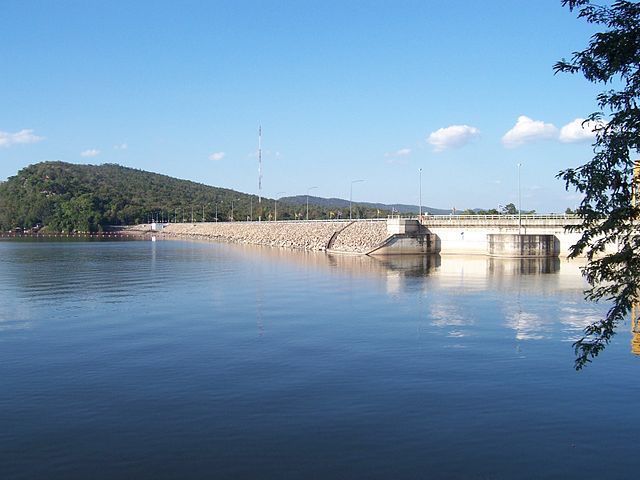By Krishan Dutt | IDN-InDepthNews Analysis
KUALA LUMPUR (IDN) – The need for sustainable development, aligning multiple economic and environmental priorities, stressed by the leaders of the 21 Asia-Pacific Economic Cooperation (APEC) member economies, in their Manila declaration on November 19, has been reiterated in a new report that forecasts a robust growth for ‘Emerging Asia’ in 2015 and in the next five years.
Renewable energy “is likely to play a large role” in the future development of Southeast Asia, China and India, countries termed as Emerging Asia, says the report, titled Economic Outlook for Southeast Asia, China and India, produced by the Paris-based Development Centre of the 34-nation Organisation for Economic Co-operation and Development, jointly with the United Nations Economic and Social Commission for Asia and the Pacific (ESCAP) and the Asian Development Bank Institute.
According to the report, real growth in Emerging Asia countries is expected to average 6.5% for 2015 and 6.2% annually over 2016-2020. Average growth in world economy is estimated at 3.3% in 2016 and 3.6% in 2017.
The report expects growth to continue to slow in China while remaining strong in India at one of the highest levels in the region. Growth in the Association of Southeast Asian Nations (ASEAN) grouping is projected to average 4.6% in 2015 and 5.2% over 2016-20, led by growth in the Philippines and Viet Nam among the ASEAN-5 and in the CLM (Cambodia, Lao and Myanmar) countries. Private consumption will be a large contributor to overall growth, says the report.
To sustain this robust momentum, the region will need to weather China’s slowing growth, which will continue to affect the rest of the region’s growth prospects, the impacts of the monetary normalisation in the United States and slowing productivity growth, warns the Outlook.
Enhancing regional ties can play a key role in maintaining the growth momentum, the report says, in a special chapter on the topic.
“The region remains exposed to domestic and external risks. To maintain the growth momentum, strengthening regional ties is imperative. Enhanced monitoring capacities through better indicators and peer learning can make the regional agenda more effective and help move towards a global ASEAN integration,” said OECD Deputy Secretary-General Rintaro Tamaki, launching the Outlook at the ASEAN Business and Investment Summit on November 20 in Malaysia.
The report points out that important policy areas in the 2016-2025 agenda that have been not been addressed adequately until now will be the areas of green growth and renewable energy, and private sector development.
“Green growth as well as the private sector as drivers of growth stand to benefit tremendously from the integration agenda,” said OECD Development Centre Director Mario Pezzini.
While Emerging Asia has achieved remarkable economic growth in recent decades, the report argues, the region’s high economic growth also has been associated with serious environmental problems. Among the various aspects of regional integration, market integration may have received too much attention at the expense of other issues, it adds.
“To redirect the current development pattern to deliver shared well-being and improved equity without exceeding ecological limits, it is necessary to rebalance sustainability objectives,” says the report.
“Increased use of renewable sources of energy, including through enhanced regional cooperation in generation, will need to be a central component of any green growth strategy that aligns multiple economic and environmental priorities,” the report adds.
It urges the region, therefore, to tap into its considerable potential in renewable energy to meet growing demand – and this by taking into account that tariffs and non-economic barriers slow integration and impede opportunities for improved efficiency.
The report finds that hydropower from the Mekong River is progressing and remains a promising source of future generating capacity to be exported throughout the region. However, it says, “environmental challenges will need to be addressed and co-operative solutions found to cross-border concerns”.
The authors of the report say that the region can experience an economic development boost through the responsible exploitation of its large renewable energy resources.
At the same time, it draws attention to the fact that in some ASEAN countries, such as Cambodia, Lao, Myanmar, Indonesia and the Philippines, the low rate of access to electricity is a major development challenge. Even among populations with access to electricity, consumption per capita is significantly lower than the OECD average in most countries in the region.
The report expects total electricity demand across ASEAN between 2009 and 2030 to increase by around 2300 TWh or terawatt hours. One terawatt hour is equal to a sustained power of approximately 114 megawatts for a period of one year. Meeting such a huge demand without devastating environmental consequences requires the large-scale utilisation of renewable energy for power generation, argues the report.
The total renewable electricity potential of the ASEAN-5 plus Singapore has been estimated to exceed the total electricity demand of the ASEAN region in 2009 by a factor of 1.8, continues the report. The majority of this huge renewable potential has been untapped.
While hydropower and geothermal resources are relatively well exploited in the region, other renewable sources, such as wind, solar and biomass, are almost untouched, the report states.
Regional barriers play a significant role in constraining the development of renewable energy sources. The way out is regional economic integration, including the liberalization of trade in renewable technologies, and regional cooperation on innovation and technology transfers. These, says the report, can play a key role in promoting renewable energy in the region. [IDN-InDepthNews – 20 November 2015]
Photo: “Ubol Ratana Dam” by TrapperFrank – Own work. Licensed under CC BY 2.5 via Wikimedia Commons.
This article is part of INPS/IDN media project jointly with Global Cooperation Council and Devnet Tokyo.
2015 IDN-InDepthNews | Analysis That Matters
Send your comment | Subscribe to IDN newsletter
Follow us on Twitter and Facebook:
http://twitter.com/InDepthNews
http://www.facebook.com/IDN.GoingDeeper

